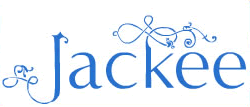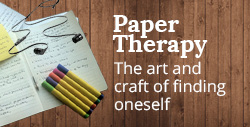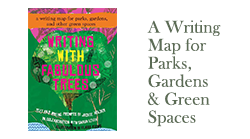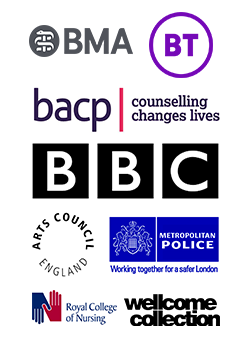Why Journal Writing Is Good For Your EQ?

To have greater self-awareness or understanding means to have a better grasp of reality. - Dalai Lama
When I was growing up I had a strong feeling even though I could not put words to it back then that emotional intelligence (mu common sense and intuition) served me much more effectively than the highly regarded cognitive IQ. As a young child I saw things in my family and my environment that I just knew weren’t right and I spoke out against it. It didn’t always go down well.
My parents were delighted when I received a place at a sought after girls grammar school in our local area. But my school, which had a strong focus on academia only served to stifle my creativity and at the age of sixteen I failed most of my GCSE’s even though I loved learning and was a model student.
That was a pivotal moment in my young life. Faced with the option of staying on at school and the reality of being forced down the route of a secretarial course or re-sitting my GCSE’s I made a very conscious and clear decision I’ve never regretted. I set my sights on college, leaving behind five years of solid friendship and a comfort zone of familiarity for the unknown territory of college. I knew in my bones that I needed a new challenge, that staying on at school would not be right for me even though I was going against the norm of the path girls followed at our school.
At college enrollment I came head to head with the Head of A’ Levels with my mother in tow (parents very rarely turned up for their children to enroll at college). He took one look at me, told me I could re-sit some of my GCSE’s, add in some new one’s and start my A’ Levels all at the same time. The combination of a stretch and his clear belief in me was all I needed to extend myself into a new place of growth and development. Within the space of two years I had five GCSE’s under my belt, achieved two A’ Level’s and once I had achieved all of those left to attend a new college where I added two more A’ Levels to my list.
But this story is not about the qualifications per se but about my ability to draw on my own self-awareness at a young age and knowing and trusting what was right for me and, what things went against the values I was slowly forming from my life experiences and view of the world. It was the beginning of the roots of the formation of my own emotional intelligence made famous in the early 1990’s by the then science journalist now psychologist Daniel Goleman.
Turns out that IQ was not the greatest indicator of personal and leadership success or job performance. Research indicated around that time was that IQ contributed 25 per cent to career success. Turns out that IQ on it’s own was not enough and emotional intelligence (EQ – Emotional Quotient) had a far greater impact on the realisation of real authentic.
Even though Goleman is the name most strongly associated with the introduction of emotional intelligence to the masses much of the work around emotional intelligence was previously pioneered by researchers and scientists like Peter Salovey and John D. Mayer Richard Boyatzis, Paul Brown and Gardner’s work on Multiple Intelligences. But it was Goleman’s book ‘Emotional Intelligence’ (1995) that caught the attention of the masses.
Over the years through my own personal practice I discovered through the combination of journal writing and reflective writing how both methods which I use to explore my work and my personal life have been strong advocates of strengthening and cultivating emotional intelligence capabilities and are both approaches that can be used for individuals to personally take responsibility for developing and developing strong foundations in emotional intelligence. The practice of conscious writing and reflection relates strongly to the six areas often identified as the key indicators of the formation of emotional intelligence.
Goleman’s four main areas of emotional intelligence are:
- Self-Awareness
- Awareness of self and others
- Social skills
- Self-Management
Here are some of the ways in which I believe journaling and reflective writing connects with the four development areas of emotional intelligence.
Self-Awareness
Journaling and reflective writing allows you to be aware of your own thoughts and feelings and be in a better position to manage and handle stress. It is a safe, self-directed space to express and unravel emotions and helps determine when and how to express emotions beyond journaling and reflective writing. Goleman believes all change start here with self-awareness. Journaling or writing reflectively gives you a higher degree of self-awareness and understanding of your strengths and weaknesses.
Ways to connect your journal and reflective writing to EQ:
- Write about your feelings in your journal or reflective notes.
- Are your feelings congruent with your reactions and behaviours?
- Make a list of your strengths and limitations.
- How can you build on your strengths?
Awareness of Self and Others
By journaling and reflecting on your work, how you do things, your relationships with others you are laying them down in writing for examination and exploration. Your journal and reflective writing notes are a way of you individually taking responsibility for understanding how your emotions and feelings impact others and understanding how others maybe emotionally feeling.
Before making a rash decision or not thought through decision you can use your writing to slow you down and listen to your own wise counsel. This helps to cultivate better decision-making skills and cultivate healthier relationships with others. It’s a healthy way of processing and releasing conflicts, frustrations and the difficult and more complex dynamics of relationships with others.
Ways to connect your journal and reflective writing to EQ:
- Make a list of all your different roles at work and in your personal life.
- How do you feel about each role?
- What works?
- What doesn’t work?
- What would you like to change
Social Skills
Social skills are about developing empathy, your understanding of the organizational politics and understanding the needs of colleagues, staff, clients and customers.
Ways to connect your journal and reflective writing to EQ:
- Draw up an inventory of your main relationships at home and at work?
- How well do you listen to each person on your list?
- How would you rate the quality of your interactions and communication with each person on your list?
- What is my body language like when you’re communicating with each individual?
- How would you like to improve or progress your relationship with each person on your list?
- What would this require for you to do more or to do differently?
- How willing are you to do this?
Self-Management
Journaling and writing reflective notes is a form of self-organizing on the page. The practice of intentional writing in this way can help identify what you think, notice what you feel and decide on how you will respond. It’s also about your response to others, how you work flexibly with others and how you maintain positivity.
- When was the last time you had an impulsive emotional reaction?
- What was the impact?
- If the impact was negative – What would you do differently next time?
- If the impact was positive – What would you do more of next time?
- If the impact made a difference – What would stay the same?
I have over twenty years of journaling under my belt and a long history of reflective practice. Emotional intelligence is an area of personal and professional development you can take personal responsibility for at very little cost that has huge rewards. The leaders of the future (in all fields and professions) need to be fit for purpose. It is no longer enough to rely solely on your cognitive expertise and knowledge.
A study in the 1950’s of 80 Ph.D.’s in science who underwent a series of personality tests, IQ tests, and interviews when they were graduate students at Berkeley. Forty years later, when they were in their early seventies, they were tracked down and estimates were made of their success based on resumes, evaluations by experts in their own fields, and sources like American Men and Women of Science. It turned out that social and emotional abilities were four times more important than IQ in determining professional success and prestige.
- How can you ensure your IQ is balanced with your EQ and that they work in partnership and collaboration?
Journal and reflective writing can be boosted hugely by investing in other learning modalities to build on your EQ capabilities. Why not try one of these free on line EQ courses to find out more about your EQ type. Become curious about your feedback. Ask yourself questions that will support you to build on the findings. It is not the whole truth. Everyone has the potential to grow and shift.
Free EQ Tests
University Of Warwick
http://www2.warwick.ac.uk/services/ldc/courses/sdl/the_practical_eq_emotional_
intelligence_test_-_2-10-12.pdf
Institute For Human Potential
http://www.ihhp.com/free-eq-quiz/
MEIT Free EI Test
http://www.maetrix.com.au/meit/eitest.html
Central Test
http://www.centraltest.com/ct_us/article-emotionnal-intelligence.php
Have fun with it all. If you would like to experience a fun, experiential journal writing workshop then join me next Wednesday March 11th at the Paper Therapy: Writing To Grow and Thrive event at 7pm (Psychologies Magazine and Now Live Events)
More details here:
http://www.nowliveevents.org/events/
https://psychologies.co.uk/paper-therapy-writing-grow-and-thrive






Leave a Reply
By submitting a comment here you grant Jackee Holder a perpetual license to reproduce your words and name/web site in attribution. Inappropriate or irrelevant comments will be removed at an admin's discretion.